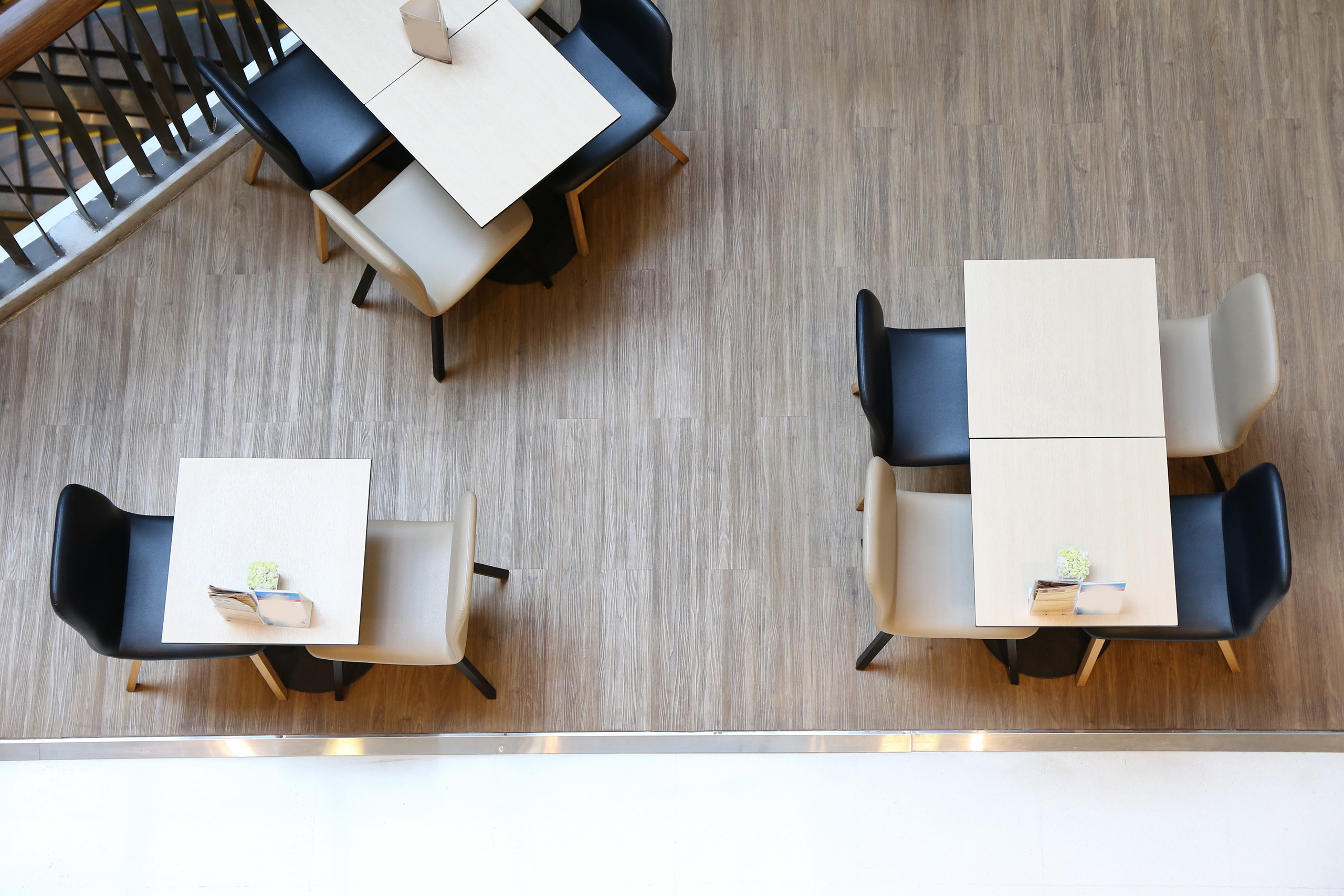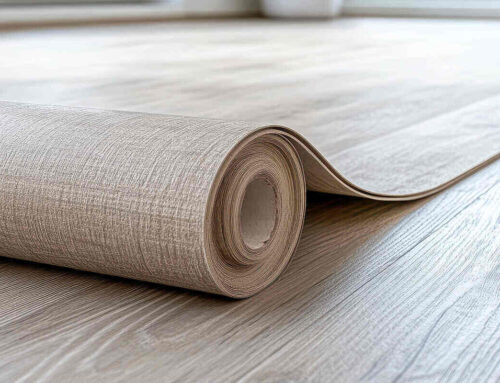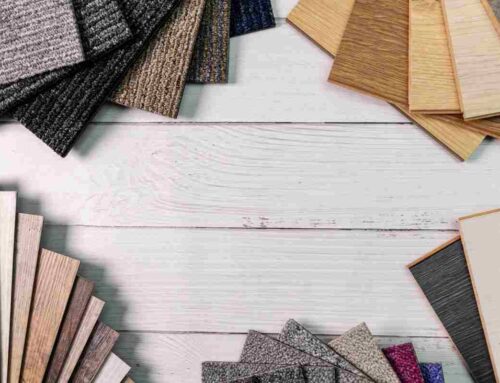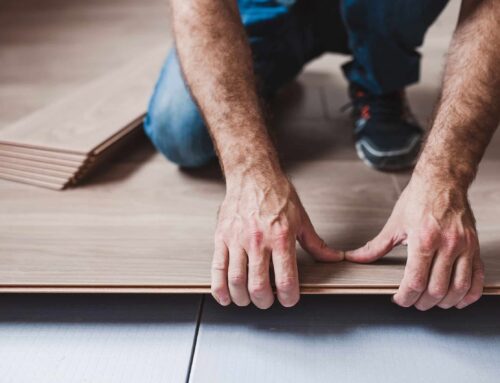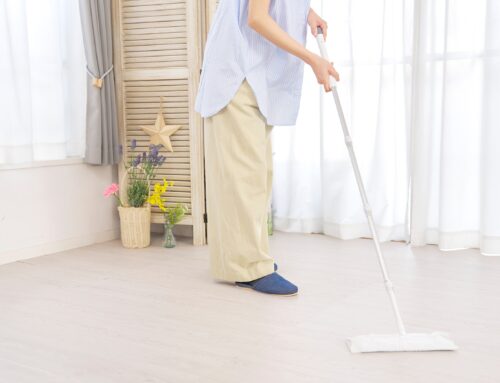As a business owner in Chesapeake, Virginia, seeking the perfect flooring solution for your commercial space, you’ve undoubtedly encountered the term “Luxury Vinyl Plank” or LVP. LVP is not just another flooring option—it’s a versatile and highly appealing choice for businesses. Its rapid rise in popularity can be attributed to its affordability, resilience, and aesthetic versatility. But there’s more to LVP than meets the eye.
To truly appreciate LVP, it’s essential to understand its evolution from conventional vinyl flooring. Over the years, vinyl flooring has transformed remarkably, resulting in the sophisticated and practical LVP we now have.
This comprehensive guide aims to equip you with the knowledge to make informed decisions about your flooring needs. You’ll learn about wear layer thickness and durability to help you choose the ideal flooring solution for your commercial space.
With Yates Flooring as your trusted guide, you can confidently navigate the world of commercial-grade LVP, coating vinyl flooring, interlocking vinyl planks, and more. Discover the perfect flooring solution for your Chesapeake business today.
Defining Luxury Vinyl Plank Flooring
Luxury Vinyl Plank has emerged as a powerhouse in the flooring industry. It’s renowned for its ability to seamlessly replicate the look of stone tiles and natural hardwood while offering distinct advantages.
This versatile flooring option is predominantly manufactured in China, and it’s important to note that its appeal isn’t solely driven by cost savings. LVP stands out for its remarkable combination of aesthetics, affordability, and ease of installation. It presents a genuine hardwood appearance without the hefty price tag or the complexities associated with traditional stone or hardwood installations.
However, it’s crucial to recognize that while LVP shines in many aspects, it may not be the perfect fit for everyone. Understanding its pros and cons is key to making an informed flooring choice.
The Evolution of Vinyl Flooring
The world of vinyl flooring has undergone a remarkable evolution, marked by an ever-changing landscape of innovations. In just a few years, the industry has witnessed transformations that have redefined how vinyl flooring is used.
Not so long ago, floppy LVP dominated the market. However, the industry quickly adapted, introducing layered options with foam cores, enhancing durability and comfort. Then came the shift towards more rigid variants, featuring stone compositions that provided even greater resilience. The choices expanded further with the introduction of glue-down and click-together installation methods, catering to diverse installation preferences.
Texture became a focal point, offering variations from smooth surfaces to textured finishes, micro bevels, and more prominent bevels. Painted bevels added an artistic touch, allowing for personalized aesthetics.
However, it’s important to note that the evolution of vinyl flooring isn’t confined to product characteristics alone. Manufacturing processes have also seen significant changes. While the US has the potential to produce high-quality LVP more affordably, the challenge lies in scaling up production. Colossal manufacturing lines, vast warehouses, and factories capable of churning out a large quantity of LVP daily have become the norm.
However, the production can take many months to build and an additional year to optimize these colossal facilities. In a rapidly evolving market, such investments must keep pace with changing consumer demands. While the US aims for high-tech automation, China’s ability to adapt quickly has allowed it to maintain profitability.
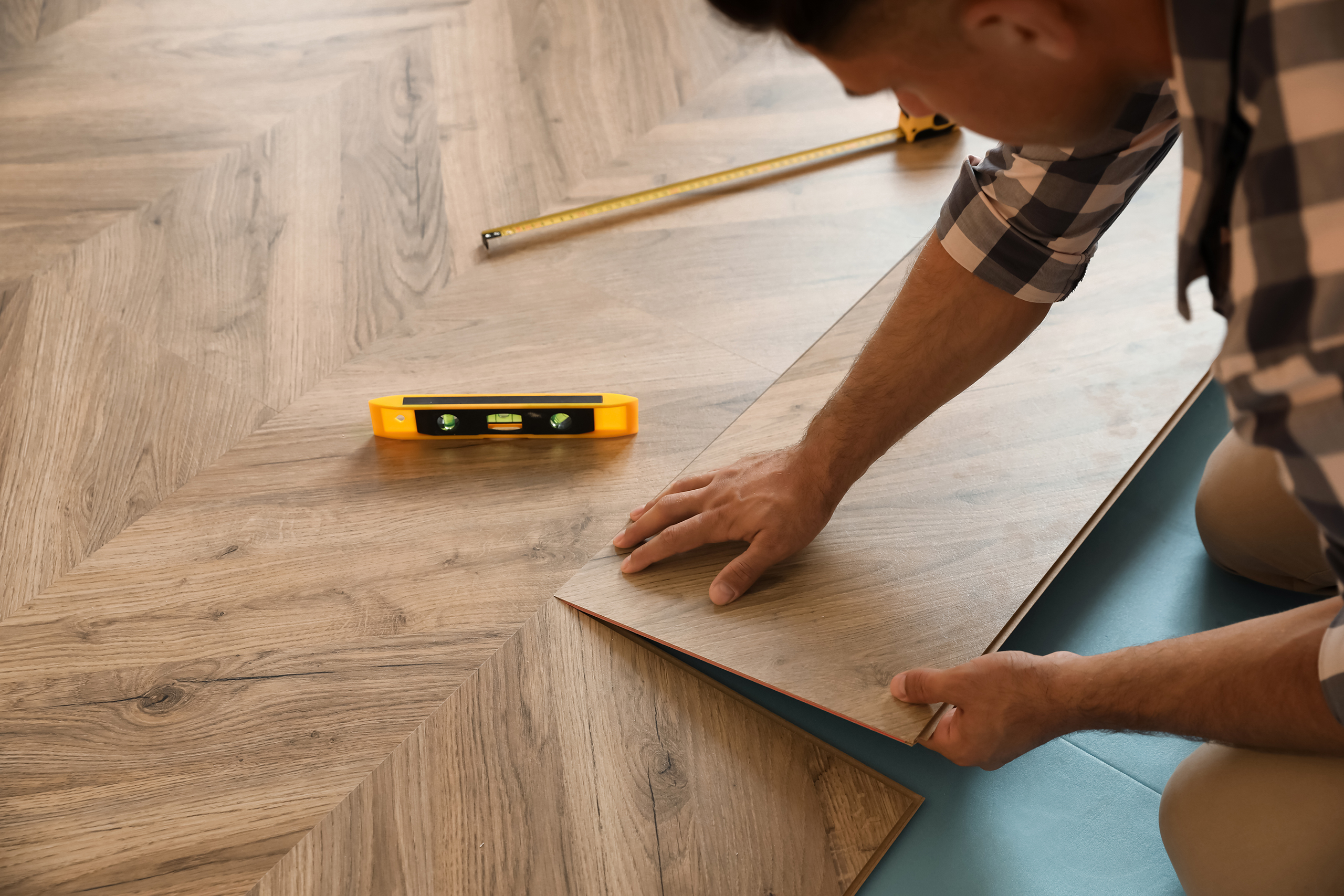
The Anatomy of LVP
When considering Luxury Vinyl Plank (LVP) flooring, it’s essential to delve into its composition to understand its performance, durability, and benefits. LVP consists of several layers, each contributing to its overall quality and functionality. Let’s dissect the anatomy of LVP:
Attached Acoustical Pad
Some LVP products have an attached acoustical pad to reduce sound transmission and provide added comfort underfoot. This pad is particularly beneficial in settings where noise reduction is a priority.
Balancing Layer
The balancing layer is a critical component that ensures the stability and flatness of the LVP. It helps counteract any potential warping or distortion, providing a level surface.
Core
The core of LVP is its foundational layer, providing structural integrity. It comes in two primary variations: Wood Plastic Composite (WPC) and Stone Polymer Core (SPC). WPC cores are known for their resilience and ability to handle moisture, making them suitable for various environments. SPC cores are even more rigid and water-resistant, ideal for areas with high moisture levels.
Image Layer
The image layer is where the aesthetics of LVP come to life. It features high-resolution images or designs that mimic the look of natural materials like stone or hardwood. This layer plays a significant role in creating the visual appeal of the flooring.
Wear Layer
The wear layer is the protective surface you walk on daily. It shields the image layer from wear and tear, ensuring the longevity of your LVP flooring. This layer is typically made from urethane-based protective coating. However, premium options may feature an aluminum oxide finish for enhanced durability.
Finish
The finish layer adds the final touch to LVP, enhancing its overall resilience. This layer can include additives that significantly increase the floor’s lifespan by providing extra strength and resistance to damage over time.
LVP Wear Layers
When it comes to Luxury Vinyl Plank (LVP) flooring, understanding the wear layer is pivotal in gauging its durability and performance. The wear layer is the protective surface between your flooring and daily foot traffic, making it a critical consideration. Let’s delve into the factors that determine the quality of an LVP wear layer.
Thickness
Thickness is one of the primary attributes people often associate with wear layers. It’s measured in mils, with standard options being 20, 12, or 6 mil wear layers. Naturally, the assumption is that a thicker wear layer equals greater durability, and to some extent, that’s true. For example, a 20 mil wear layer is over three times thicker than a 6 mil one, making it more resistant to wear-through over time.
However, wear-through isn’t necessarily the only indicator of durability. The change in the appearance of your LVP, particularly in high-traffic areas, can often be the deciding factor. This change in gloss level results from abrasive wear and is a better gauge for knowing when it might be time for a replacement.
Durability
Manufacturers often incorporate additives to enhance the wear layer’s durability. These additives can significantly increase the floor’s resistance to scratches and abrasions, ultimately prolonging its lifespan.
Leading brands like Yates Flooring prioritize incorporating quality additives into their wear layers, ensuring their LVP products offer superior durability. Investing in LVP from reputable manufacturers can save you from the hassle of prematurely replacing your flooring due to wear and tear.
Vinyl Plank Cores
Regarding Luxury Vinyl Plank (LVP) flooring, the core is a critical component that greatly influences its performance and durability. LVPs have come a long way from their early solid vinyl days, and now there are two prominent core types to consider: Wood Plastic Composite (WPC) and Stone Polymer Core (SPC).
Wood Plastic Composite
WPC, which stood for Wood Plastic Composite, is now more appropriately referred to as Waterproof Polymer Core. This core type incorporates a blend of plasticizers, calcium carbonate, polyvinyl chloride, and wood-like materials such as wood flour. Additionally, a foaming agent is introduced to provide a softer underfoot feel. This added softness makes WPC LVPs comfortable to walk on. Still, it also makes them more susceptible to wear and dents than their SPC counterparts.
Stone Polymer Core
SPC, short for Stone Polymer Core, represents a rigid core construction made from polyvinyl chloride, calcium carbonate (limestone), and plasticizers. SPC floors are known for their exceptional durability and dent-resistance. Unlike WPC, they maintain their integrity even in high-traffic areas, making them an excellent choice for spaces that demand longevity.
One of the challenges in the LVP market is the lack of standardized comparison metrics between manufacturers, making it challenging for businesses to determine which floor will perform the best. However, when it comes to cores, the rule of thumb is that harder cores, as found in SPC LVPs, tend to last longer and withstand wear and tear more effectively.
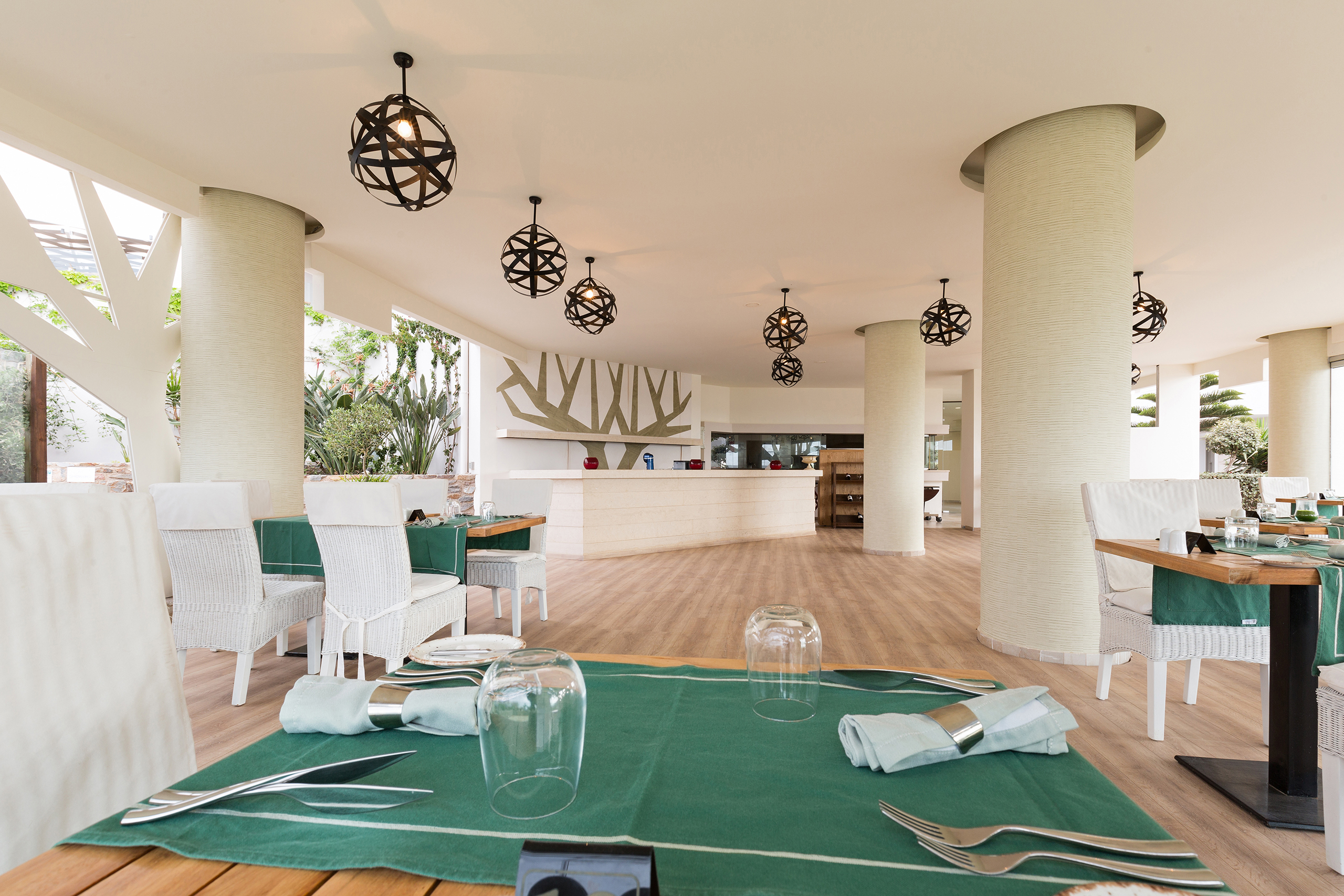
Pros and Cons of LVP vs. Hardwood
Choosing between commercial-grade LVP and hardwood flooring can be a dilemma for many business owners. LVP is waterproof and highly durable, making it resistant to moisture-related damage. With a thick wear layer and quality core construction, LVP can last decades with proper maintenance. It offers excellent value for the price, and it won’t significantly impact your property’s resale value. LVP comes in various styles and can mimic the look of hardwood effectively. However, some traditional-minded business owners may prefer the authenticity of hardwood for their business facility.
Hardwood boasts a beautiful, timeless feel that can elevate a room’s ambiance. These floors can be refinished, allowing you to change the color or refresh the floor’s appearance. Like LVP, hardwood can last for decades when properly maintained.
That said, hardwood is vulnerable to moisture, potentially leading to costly repairs or maintenance. It’s relatively more expensive than LVP. While versatile, hardwood may not always align with the latest design trends.
Ready to Invest in Your Floors?
Discover the perfect flooring for your needs at Yates Flooring. They offer a wide selection of interlocking vinyl plank flooring for your business. Explore the difference between LVT and LVP with their experts. Whether it’s commercial-grade LVP, vinyl coating, or interlocking planks, they have you covered.
Contact them today!

